A ‘victory’ on trial: When the ‘popular’ vote is unpopular
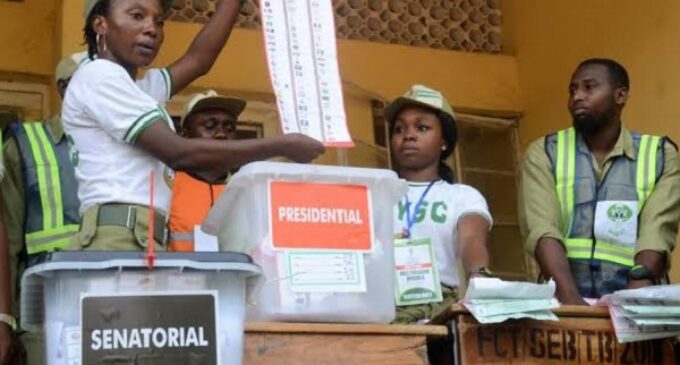
BY ZUHUMNAN DAPEL
Since the end of military juntas and the return to a democratic system of government in Nigeria about a quarter of a century ago, six (except for the latest) presidential polls have so far been conducted. None of these elections was free of contestation. The outcomes were legally disputed and battled up to the supreme court level in that the final decision on the officially backed winner (sworn into office) was not made at the ballot boxes but at the jury box or the courtrooms.
The recent presidential election is not only headed in the same direction but also many Nigerian voters and observers (local and foreign) of the election are expressing scepticism on its outcome to a level not seen in the history of the country’s democracy, deeming it the most fraudulent elections of all time, FOAT.
Their repudiation of the outcome is predicated on the fact that the conduct of the elections was not consistent with the legislatively supported electoral guidelines and that the electoral body, INEC, the military, and the ruling party have colluded in pilfering votes and victories. Nationally, the mood of the people is not blissfully in tandem with the announcement of the election results as the streets were (and still) destitute of joys and jubilations that were often preceded by the conduct of robust presidential elections.
Why is this ‘victory’ on probation?
Regarding the electoral guidelines, Nigeria is yet to adopt the use of electronic voting, but the latest Electoral Act mandates the electronic transmission of results from the polling units to the database of the electoral commission and subsequently the national collation centre where the winner will be announced by the chief returning officer, the INEC chairman. The Electoral Act was well received by both the local and international communities because it will improve transparency in choosing leaders and consequently deepens the largest democracy on the African continent.
The BVAS, bimodal voters accreditation system, is to the electoral process at polling booths what an invigilator is to the conduct of an academic examination in a hall or a college setting, where answer scripts (or booklets) will no longer be trusted if no invigilator is present throughout the period of the exam. Similarly, election results are severely called into question in the absence of BVAS live-transmitting results from the polling stations to collation centres. Because non-transmission (in real-time) of the results of the election is equivalent to the dismantling of the guardrails erected to protect the voting process from corruption: fraud and manipulations.
Statistically and historically, is it practically impossible for a candidate to win Nigeria’s presidential elections without winning the triple-K states (Kano, Katsina and Kaduna) and Lagos, plus losing in 25 (out of 36) states and the federal capital? The announced result seems to have offset this odd. At this juncture, it should be noted that the three leading candidates, according to the questionable results, won 12 states each, with wins spread across at least four of the six subregional zones.
Will justice roll on like a river?
The election was contested by 18 candidates but only three clinched roughly 90 per cent of the total valid votes. The other two candidates with more than two-thirds of the total valid votes have vowed to reclaim their mandates through the courts. But “will justice roll on like a river?”
The supreme court as a legal institution is under question because the chief justice responsible for appointing members of the presidential election tribunal is being accused of cosying up to the ruling party and its presidential candidate. This scepticism is fuelled by recent judicial antecedents of the supreme court: e.g., the transfer of mandate from Machina to Lawal and from Akpabio to Ekpoudom. Both judgements were in favour of the party in power. There is nothing wrong with the scale of justice swinging in this direction provided the verdicts are impartial.
Part of the mistrust of the judicial system is driven by antecedents. Previous executive actions have shown the judiciary arm of government is not utterly independent of the executive branch of the government in that through presidential powers, the chief justice of the federation was once booted out of office on allegations of corruption. In stable democracies, justices are removed from office by at least two-thirds of the members of congress, the legislative branch of government. Nonetheless, there seems to be some ray of hope on the horizon.
The two leading legal challengers of the presidential polls have had successful legal histories throughout their political careers. Atiku Abubakar of PDP, then as vice president of Nigeria, won 11 legal battles against the then-sitting president. Also, Peter Obi of the Labour Party repossessed two stolen electoral mandates as the governor of the richest state in the southeast region of Nigeria. Nonetheless, they seem to express shaky trust in the current judicial system.
A victory standing on sinking sand?
A government by the people will benefit from the goodwill of the people. Tellingly, a blissful marriage is a two-way street. The bride is in love with the groom and the groom is also in love with the bride. But chaos sets in and reigns in a union where the bride was foisted on the groom, or the groom is imposed on the bride.
However, a leadership not established by the absolute will of the people will struggle to govern the people even if it promises the people streets of gold because the government – given the process in which it was vaulted to power – has failed to win the affection of the people as their wishes were subverted. Subsequently, the government becomes unpopular among the citizens, ultimately sowing and breeding the seed of rebellion by the governed.
The wounds inflicted by injustice can only be healed through one means: return to the people their legitimate mandate. Finally, those (fighting for and) looking forward to a new and better Nigeria believe that the destiny of the nation is superior to the desperate and ill-driven ambition of any politician and one man cannot hold to ransom a country of more than a quarter of a billion people. Nigeria must be freed from the iron clasp of those holding back its progress.
Dapel can be reached on Twitter @dapelzg
Views expressed by contributors are strictly personal and not of TheCable.





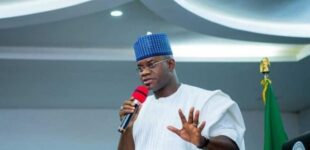

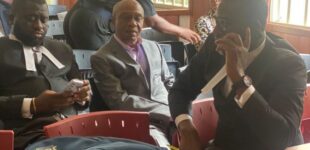
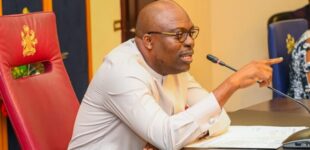
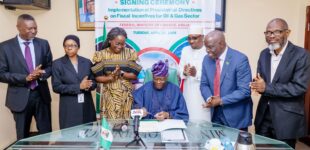
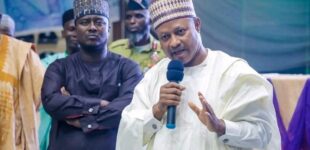
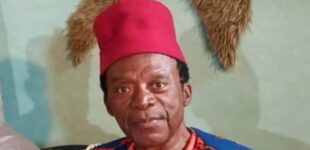

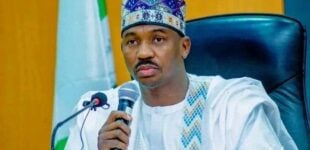

There are no comments at the moment, do you want to add one?
Write a comment